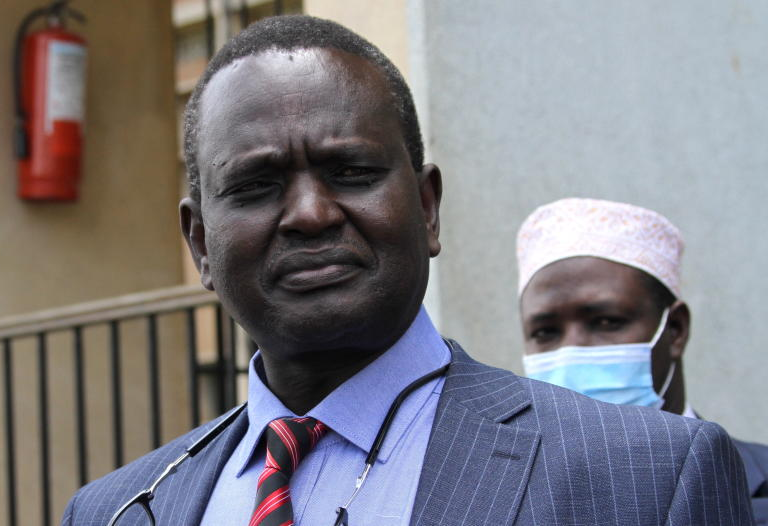Poghisio calls for unity, says Kenya’s leadership must admit collective failures

Former Senate Majority Leader Samuel Poghisio has called for unity, urging Kenya’s leadership to admit to collective failures.
Speaking during an interview on a local TV station, Poghisio stressed the importance of truthful repentance, noting that progress cannot occur without leaders acknowledging their wrongs.
He criticised the tendency to scapegoat the police for corruption, questioned the sources of large sums of money seen at political events, and lamented that no leader ever publicly says, “I’m sorry” or admits guilt.
He stressed that Kenya cannot move forward until its leadership admits to past and ongoing failures. He called for a deeper level of repentance, one grounded in truth rather than political showmanship.
“One of the things that we must come to terms with is: if we are going to be repenting, apologising, and forgiving each other, we must come to the place we say, ‘We have wronged, we have failed.’”
His sentiments come just a day after the 22nd National Prayer Breakfast event held at Safari Park Hotel, Nairobi on May 28, 2025, Poghisio challenged the nation’s top leadership to go beyond symbolic gestures and embrace genuine accountability.

He noted that the prayer meeting held the previous day lacked this honesty, suggesting that it avoided addressing who among the leaders is truly accountable for the country’s shortcomings.
A broken system of accountability
Turning his attention to corruption, Poghisio dismissed the tendency to blame law enforcement officers as scapegoats. He argued that the root of corruption lies much deeper and involves people in positions of high authority.
“In the case of corruption, usually we blame the police. Does the police take bribes from your pocket?”
By posing this rhetorical question, Poghisio emphasised that corruption is a systemic problem, often protected and sustained by those at the top.
Poghisio also raised questions about the extravagant spending witnessed during national events, where political leaders arrive with fleets of vehicles and apparent ease in dishing out money.
“That is where failure has come in, seeing members of the executive go to harambees and hand over cash in the glare of camera and even announce their names to an impoverished society, it is ether you are stealing our money or probably misusing money allocated to something else, the president has to look into this, these people are embarrassing him,”
Poghisio lamented that there is never a moment when a leader stands before the nation and says, “I’m sorry, I was wrong, or I’m corrupt.”
Poghisio’s remarks struck a chord in a political climate where public trust in institutions continues to decline. His message was clear: Kenya needs leaders who are not only willing to pray and speak in public forums but are also prepared to own up to their actions and seek genuine reconciliation.
His voice joins growing calls for a leadership culture that values truth, humility, and the courage to admit failure.
“That’s the Kenya we want. Let’s be honest. Let’s stop pretending.













